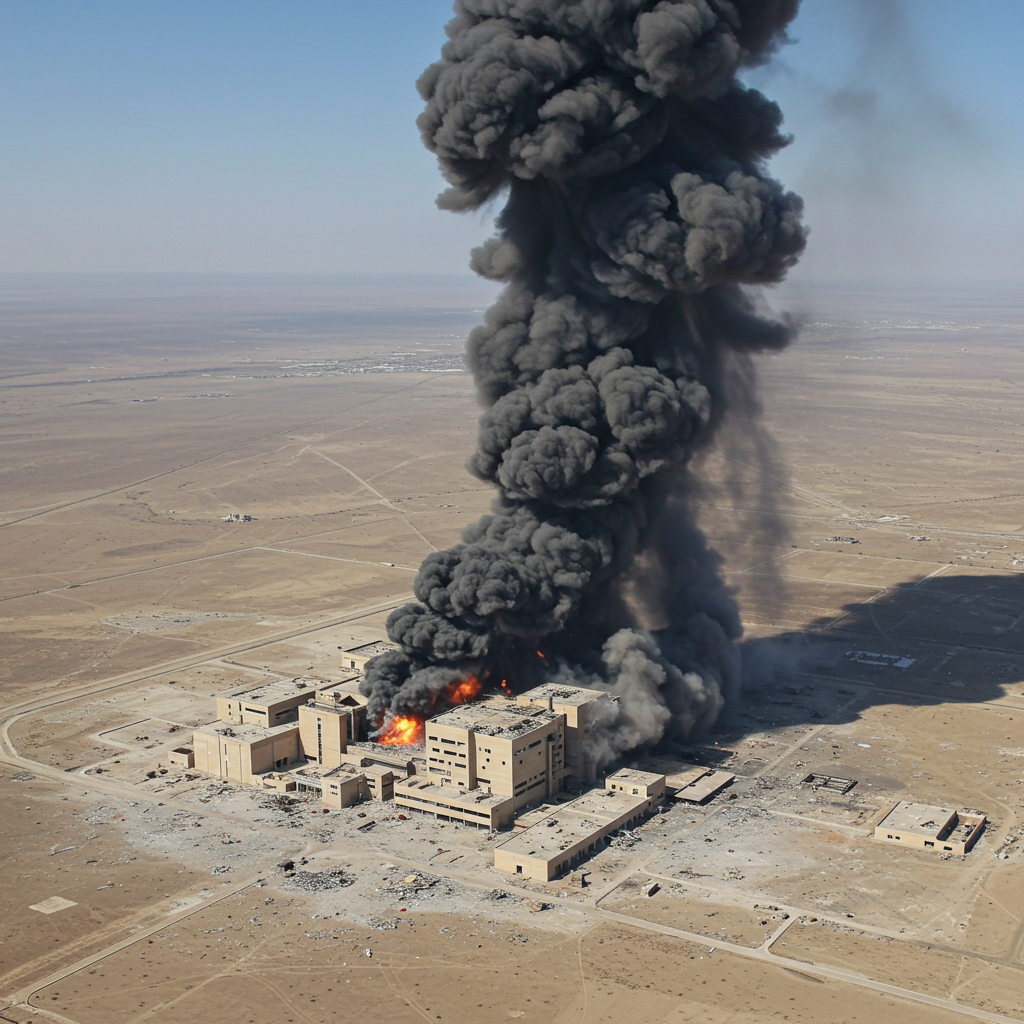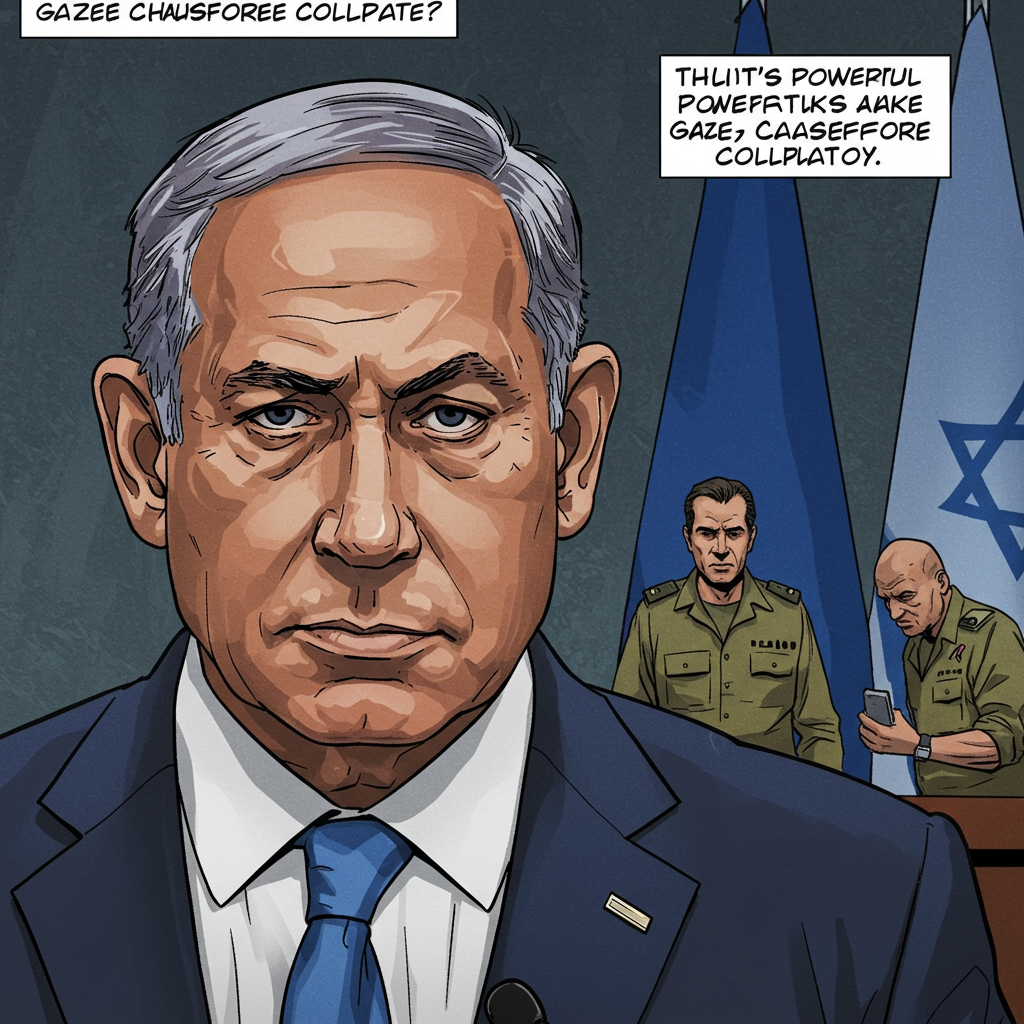Israel has carried out an airstrike targeting Iran’s Arak heavy water reactor, according to Iranian state television reports on Thursday. The strike marks a significant escalation on the seventh day of intense reciprocal attacks between the two nations.
Iranian officials stated there was “no radiation danger whatsoever” at the Arak facility and claimed the site had been evacuated before the Israeli attack took place.
The Israeli military had earlier issued a public warning on social media platform X, urging people to leave the area around the reactor. The warning included a satellite image of the plant highlighted in red, a tactic used in previous warnings ahead of Israeli strikes.
Understanding the Arak Reactor
Located approximately 250 kilometers (155 miles) southwest of Tehran, the Arak heavy water reactor is a key component of Iran’s nuclear program. Heavy water serves as a coolant in certain types of nuclear reactors and is also used to produce plutonium as a byproduct. Plutonium could potentially provide Iran with an alternative pathway to developing a nuclear weapon, separate from enriching uranium, should it choose to pursue such a capability.
While Iran maintains its nuclear program is purely for peaceful purposes, it has been enriching uranium to levels up to 60% purity, a technical step away from the 90% needed for weapons-grade material and a level unique for a non-nuclear-weapon state.
Under the 2015 nuclear deal with world powers, Iran had agreed to redesign the Arak facility specifically to address proliferation concerns and limit its potential to produce weapons-grade plutonium. This included provisions to disable certain parts of the reactor, reportedly including the core seal, with concrete. Following the U.S. withdrawal from the agreement in 2018, Iran reportedly purchased parts needed to potentially replace disabled components. Iran also began operating the reactor’s secondary circuit in 2019, a move that did not violate the deal at the time. As part of the 2015 accord negotiations, Iran had committed to selling off its heavy water surplus to the West, including a notable purchase by the U.S.
Escalating Conflict and Reciprocal Strikes
The strike on Arak is part of a broader campaign of Israeli airstrikes on Iran that has entered its second week. These attacks have reportedly targeted various Iranian nuclear sites, including the enrichment facility at Natanz, centrifuge workshops near Tehran, and a nuclear site in Isfahan, and have reportedly resulted in the deaths of senior Iranian generals and nuclear scientists.
In retaliation, Iran has launched hundreds of missiles and drones at Israel. These Iranian strikes have impacted targets across Israel, including a direct hit on the Soroka Medical Center, the main hospital in Be’er Sheva, causing extensive damage and wounding staff and patients. Iranian missiles have also struck residential areas, including a high-rise apartment building in Tel Aviv and other locations in central Israel, collectively wounding dozens across the country. While Iran claims it targets military sites and attributes civilian damage to blast waves, Israel’s Magen David Adom rescue service reported at least 40 people were wounded from the recent missile barrage.
The ongoing hostilities have led to a significant human toll on both sides. A Washington-based Iranian human rights group estimates at least 639 people, including 263 civilians, have been killed in Iran, with over 1,300 wounded. Iranian retaliatory strikes have killed at least 24 people in Israel and wounded hundreds.
International Concerns and Evacuations
The International Atomic Energy Agency (IAEA), the U.N.’s nuclear watchdog, has reportedly urged Israel to avoid striking Iranian nuclear facilities. Due to restrictions imposed by Iran, the IAEA has stated it has lost “continuity of knowledge” regarding Iran’s heavy water production, hindering its ability to definitively verify Tehran’s production levels and stockpiles.
The intensifying conflict has also prompted international diplomatic activity. Egypt’s Foreign Minister has called on the UK, Germany, and France (the E3) to open dialogue channels and leverage available avenues with Iran to de-escalate the situation. Several countries are also preparing for or executing evacuations of their citizens from both Iran and Israel. Japan has deployed aircraft and personnel for potential airlifts, while China is organizing bus evacuations from Israel to Egypt, and Indonesia is evacuating its citizens from Iran, particularly students in Qom.
The latest strikes come a day after Iran’s supreme leader publicly rejected U.S. calls for surrender and warned of “irreparable damage” should American forces become militarily involved. Concurrently, Israel had lifted some daily life restrictions, potentially indicating an earlier assessment that the immediate missile threat from Iran might be receding before this latest exchange.




